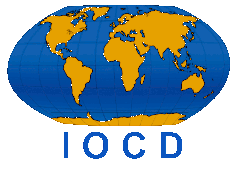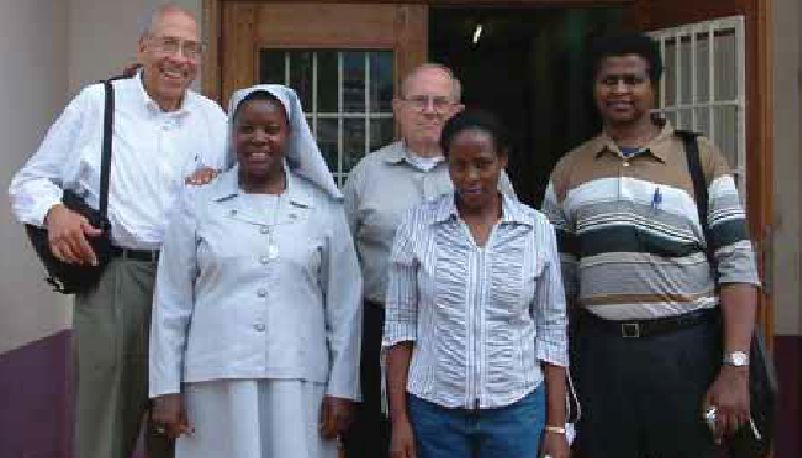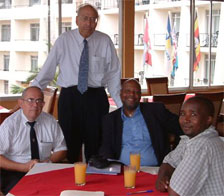
International Organization for Chemical Sciences in Development

International Organization for Chemical Sciences in Development
⇑ Former Working Groups and Projects
For many years IOCD operated a Working Group (WG) In Environmental Analytical Chemistry which was formed in partnership with the International Union of Pure and Applied Chemistry (IUPAC). The WG worked to enhance capacities for environmental chemical analysis and sustainable use of resources in low- and middle-income countries (LMICs), addressing the need to ensure a sustainable environment encapsulated in Millennium Development Goal 7. The WG was wound up in 2013. Below we present some highlights from the work of this important IOCD initiative and salute the many scientists who contributed to its success, including Walter Benson, Al Pohland, Jack Plimmer and René Van Grieken.
Contamination of the environment can result from a wide range of human activities, including agriculture, industrial production, energy production and consumption and household activities. Analytical chemistry is a vital tool to help address concerns about the environment, enabling the detection and monitoring of levels of contamination of air, land and water.
IOCD's WG operated through collaboration with analytical chemists in LMICs to build their capacities as staff members and managers of analytical laboratories. These chemists need to produce test results that are accurate, reliable, and acceptable internationally, since the results are involved either in monitoring a country's environment (air, water and soils), or ensuring the quality and purity of agricultural or manufactured products intended for export.
IOCD's principal strategies were to:

The IOCD team's visit to the Uganda National Bureau of Standards (UNBS) in October 2005. Team members (rear, from left) Walter Benson, Albert Pohland and Geoffrey Kamau, shown with (front left) Anthonia Nakamya (head of the National Drug Authority Quality Control Laboratory in the Uganda National Drug Authority) and Hope Kamusiime (head of the Chemistry Section at UNBS)
Examples of projects that were conducted by the WG in Environmental Analytical Chemistry include:
From left: IOCD Scientists Al Pohland, Walter Benson and Patrick Wilson consult with Ugandan economist Nicodemus Rudaheranwa

Because of increasing urbanization, the rise in vehicle emissions and the trend towards greater industrialization, urban air quality in many countries is worsening. This is notably the case in Africa, where currently 38% of the continent's population is living in urban areas and it is estimated that this proportion will rise to 54% by 2030. A large number of African countries have begun to adopt air quality management legislation, regulations, or policies as a consequence of the high concentration of air pollution, particularly in the large cities, and its adverse effect on human health. Other countries are recognizing the need for improving air quality and moving to control emissions. The active involvement of the environmental quality management agencies in the African countries is an indication of their interest in improving air quality, particularly to demonstrate that the new control measures are having their intended effects and that specific sources of pollution are being reduced as control measures are introduced.
Analytical chemistry has a vital role to play in supporting these efforts to improve air quality and reduce health risks.
In collaboration with the International Atomic Energy Agency (IAEA) and the Tanzania Atomic Energy Commission (TAEC), IOCD's Environmental Analytical Chemistry Working Group organized a workshop in Arusha in 2011, which focused on the analysis of air particulate matter. The report of this workshop and the outcomes can be downloaded here.
⤒ Top
Organisation Internationale des Sciences Chimiques pour le Développement
61 Rue de Bruxelles
B 5000 Namur, Belgium
Quick links:
home
site map
support
contact us
legal notice